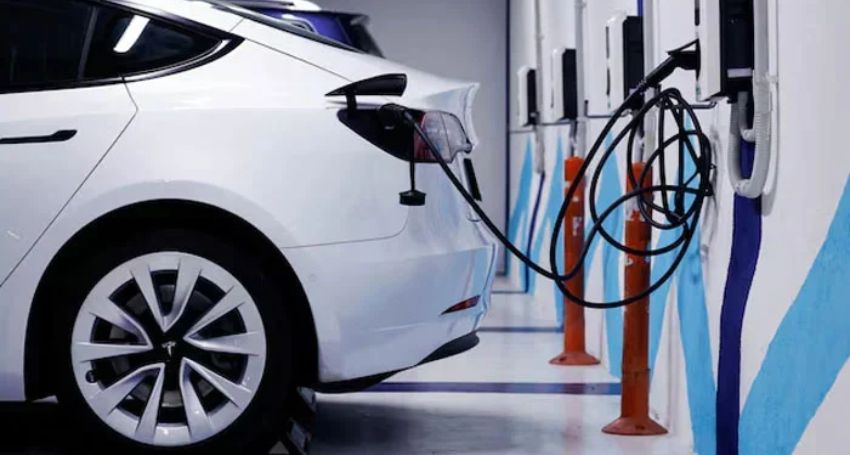
Hybrid electric vehicles (HEVs) are revolutionizing the automotive industry, offering a blend of fuel efficiency, sustainable transport, and eco-friendliness. This article explores the pros and cons of hybrid vehicles, helping you make an informed decision about whether to switch to a hybrid car. If you’re interested in understanding how hybrids work, their advantages and disadvantages, and how they compare to conventional and electric vehicles, this guide is for you.
What Is a Hybrid Electric Vehicle (HEV)?
Hybrid electric vehicles (HEVs) combine a gasoline engine with an electric motor, providing the benefits of both types of power. These vehicles are designed to switch between the electric motor and the internal combustion engine, allowing for a balance between performance and fuel efficiency. In some models, the electric motor operates independently at low speeds, while the gasoline engine kicks in when more power is needed.
The primary advantage of hybrids is their ability to use less fuel than conventional cars. By using both electric power and gasoline, these vehicles generally cost less in fuel consumption. They also offer reduced tailpipe emissions compared to gasoline-powered vehicles, making them an eco-friendly choice for modern drivers.
How Does a Hybrid Vehicle Work?
Hybrid vehicles utilize a combination of an electric motor and a gasoline engine. The electric motor provides extra power during acceleration and assists the gas engine during high-speed driving, improving fuel economy. HEVs often feature regenerative braking, a technology that captures energy lost during braking and uses it to recharge the battery pack.
This hybrid system allows vehicles to switch seamlessly between the gas engine and electric motor, optimizing performance and efficiency. Some hybrid models, known as plug-in hybrids, allow drivers to recharge the battery using electric charging stations, extending the range of electric-only driving.
Types of Hybrid Cars
Hybrid cars come in different models and types, each suited for varying driving needs:
- Full Hybrids: These vehicles use both the electric motor and gasoline engine independently or together. Examples include the Toyota Prius, which operates in electric mode at lower speeds and switches to gasoline at higher speeds.
- Mild Hybrids: These vehicles primarily use the gasoline engine, with the electric motor providing additional power during acceleration. The system cannot operate solely on electric power but enhances fuel efficiency.
- Plug-In Hybrids: Plug-in hybrid electric vehicles (PHEVs) have larger batteries that can be recharged using electricity. They offer an extended electric-only driving range compared to full hybrids.
Choosing the right type of hybrid depends on your driving habits and preference for electric power versus gasoline.
Advantages of Hybrid Electric Vehicles
Hybrid electric vehicles offer several benefits:
- Improved Fuel Economy: Hybrids use less fuel compared to conventional vehicles, resulting in lower fuel costs and better miles per gallon (MPG).
- Reduced Emissions: By relying on electric power, hybrids emit fewer pollutants than gasoline cars, making them a greener choice.
- Incentives and Tax Benefits: In some regions, hybrid owners may receive incentives or tax breaks, further lowering the cost of owning a hybrid.
Switching to a hybrid vehicle not only saves on fuel costs but also contributes to environmental sustainability.
Disadvantages of Hybrid Electric Vehicles
Despite the benefits, there are disadvantages to owning a hybrid vehicle:
- Higher Purchase Price: Hybrids generally cost more than conventional cars due to their advanced technology and battery systems.
- Complex Maintenance: The combination of electric and gasoline components may require specialized mechanics, potentially increasing routine maintenance costs.
- Battery Replacement Costs: While hybrid batteries are designed to last, they eventually need replacement, which can be expensive.
Understanding the disadvantages of hybrid cars is crucial when deciding whether to buy a hybrid or stick with a conventional or electric vehicle.
Fuel Economy in Hybrid Vehicles
Hybrid cars are designed to provide better fuel economy than traditional gasoline-powered vehicles. They achieve this by using electric power for short distances and low speeds, significantly reducing fuel consumption. Regenerative braking also plays a role in enhancing fuel economy by capturing energy and storing it in the battery.
If you drive primarily in urban areas, hybrid vehicles use electric power more frequently, resulting in substantial fuel savings. However, fuel economy may vary by vehicle model and type, so it’s essential to compare options before making a decision.
Read More: Common Issues with Electric Vehicles and How to Resolve Them
Battery Technology in Hybrid Vehicles
The battery is a critical component of hybrid electric vehicles, storing energy to power the electric motor. Hybrid batteries are designed to recharge using regenerative braking and when the vehicle switches from gasoline to electric mode.
While the battery technology in hybrids is constantly improving, it’s important to note that larger batteries used in plug-in hybrids require charging equipment and access to electric charging stations. If you are considering a plug-in hybrid, make sure you have access to convenient home charging or public charging stations to maximize electric mode usage.
Hybrid vs. Electric Cars
When deciding between an electric and a hybrid vehicle, consider the following:
- Range: Hybrid vehicles typically have a longer range than electric cars because they switch to gasoline when the battery is depleted. This makes hybrids go for long-distance travel.
- Charging: Electric cars require access to charging stations or home charging setups, while hybrids can refuel at conventional gas stations, offering greater flexibility.
- Cost: Hybrids generally have a lower initial cost compared to electric vehicles, but they still provide better fuel economy than traditional gas cars.
Both vehicle types offer benefits, so your choice depends on your driving habits, budget, and access to charging infrastructure.
Car Insurance for Hybrid Vehicles
Car insurance for hybrid vehicles may vary depending on the model and type of hybrid power system. Some insurance providers offer discounts for hybrid owners due to the vehicles’ eco-friendly and fuel-efficient nature. However, others may charge higher premiums due to the advanced technology and repair costs associated with hybrids.
When purchasing car insurance for a hybrid, it’s essential to compare quotes and policies from different providers to find the best rate.
Are Hybrid Vehicles Worth the Investment
The decision to buy a hybrid depends on several factors, including your driving habits, fuel costs, and long-term savings. While hybrids generally offer lower fuel costs and environmental benefits over conventional vehicles, they come with disadvantages as well, such as higher upfront costs and potential battery replacement expenses.
If you frequently drive in urban environments where electric power can be maximized, hybrid vehicles may be an excellent investment for fuel savings. However, if long-distance driving and fuel availability are your priorities, a gasoline-powered vehicle or a plug-in hybrid might be more suitable.



